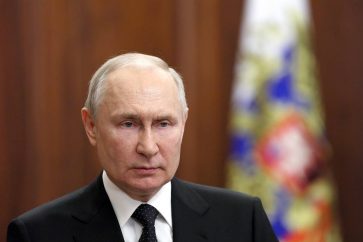In the fall of 2015, the United Arab Emirates’ ambassador to the United States, Youssef Al Otaiba, sent a concerned email to a group of high-level officials in his government, stressing that the war in Yemen was becoming a public-relations nightmare.
The Obama administration, he told leadership back home, remained reluctantly supportive, but the ongoing Saudi-led campaign was harming the US reputation and thus putting his own country, an active and eager participant in the war, in a delicate position.
The September 2015 memo documenting Otaiba’s concerns was sent to a wide set of UAE decision makers. It was originally emailed to Assistant Secretary-General of the Supreme National Security Council Ali Al Shamsi, Crown Prince Court Undersecretary Mohammad Mubarak Al Mazrouei, and Sayyed Basar Shueb, a Pal Technology executive.
Otaiba then forwarded the email to Khaldoon Al Mubarak, a top UAE official close to Abu Dhabi Crown Prince Mohammed bin Zayed, informing him that he sent the same memo to “TBZ, ABZ, and Dr. Anwar” — referring to Emirates Minister of Foreign Affairs and International Cooperation Abdullah bin Zayed Al Nahyan; Tahnoon bin Zayed, a senior banker in the UAE; and Minister of State for Foreign Affairs Anwar Mohammad Gargash.
In the memo, Otaiba laid out stark concerns about the war and the political situation it was creating.
“In a series of long conversations with WH officials, it has become evident that the human toll and collateral damage occurring in Yemen is putting the administration in a political corner,” he wrote.
He then frankly conceded, “The increased targeting of civilian sites combined with the lack of humanitarian support is translating into a liability for Washington.”

Source: The Intercept




